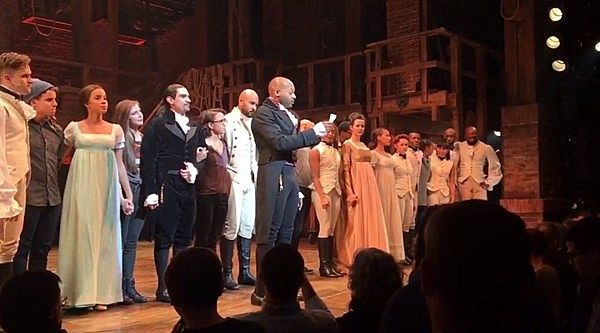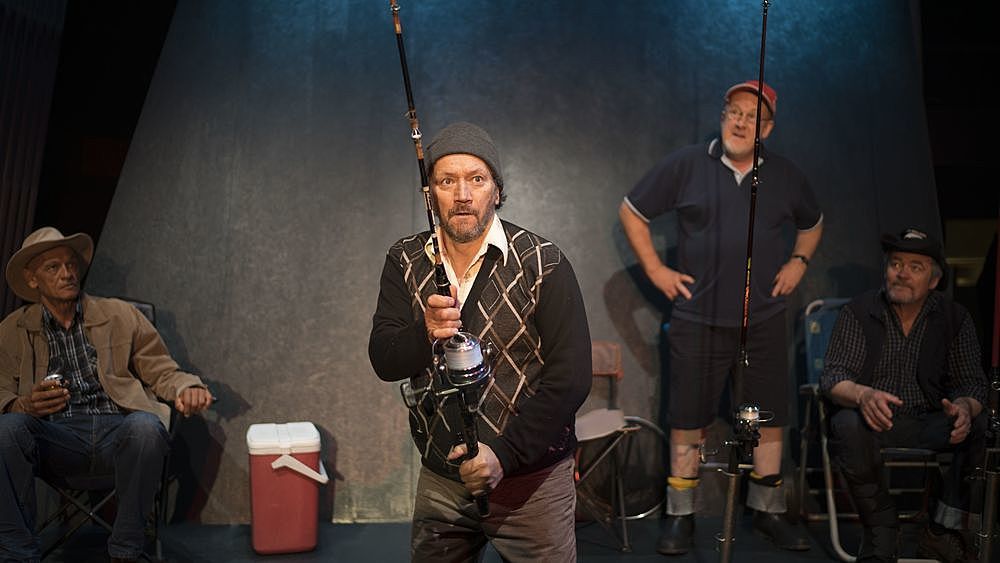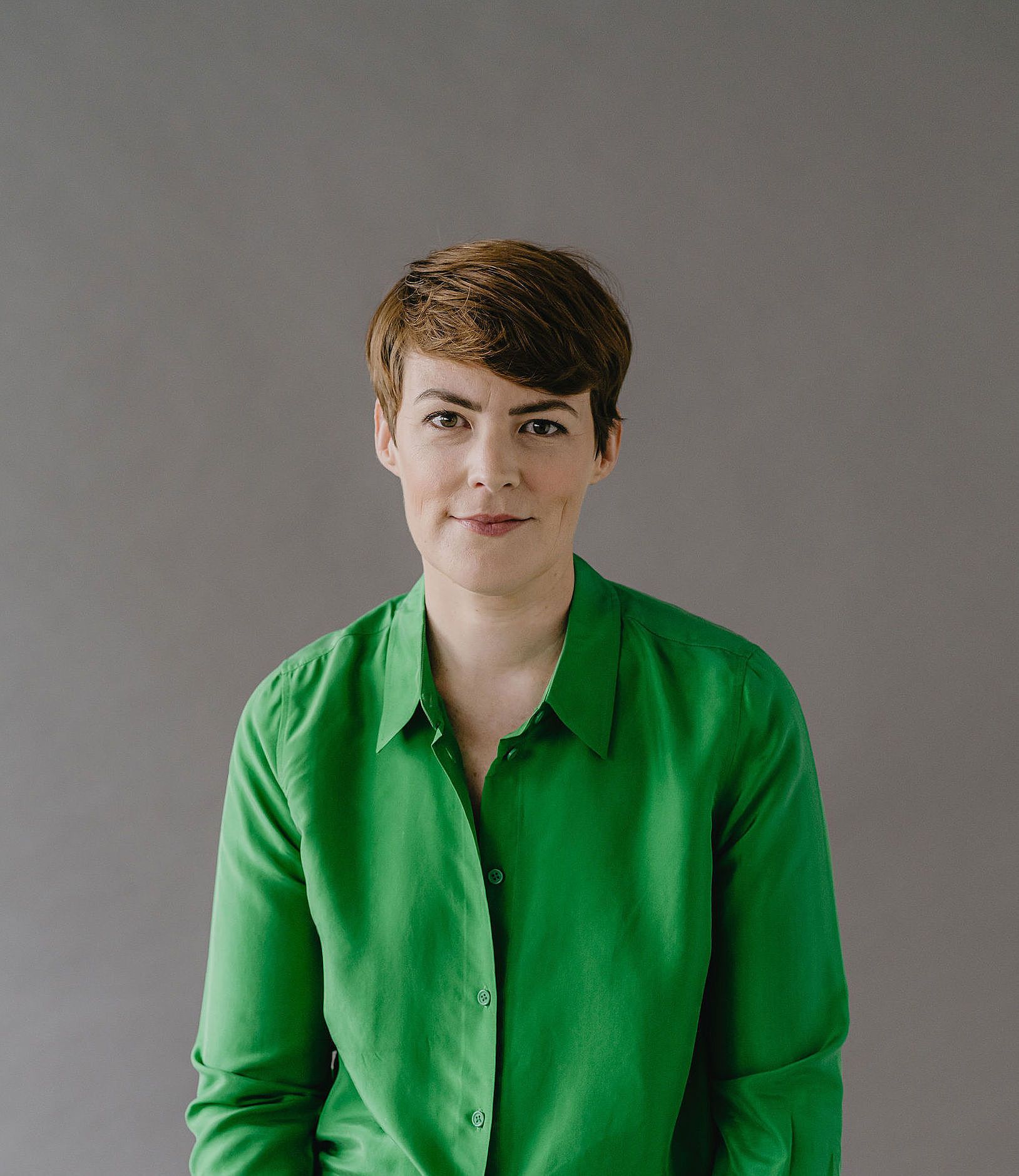Loud in the Cheap Seats: November Theatre Roundup
Kate Prior shakes down the month in theatre and sees what sticks.
Kate Prior shakes down the month in theatre and sees what sticks.
Twenty minutes into watching Silo Theatre’s production of Marius von Mayenburg's Perplex the other night I heard a really familiar laugh somewhere close to me. I ignored it at first, but the second time I heard it I had to check, and looking down the aisle it struck me that the laughter was coming from my best friend. I’d just been talking to her earlier that day but hadn’t known she was coming to the show. It felt fitting for the play we were watching – that the familiar suddenly becomes strange, or vice versa. Like those moments when you see a friend walking down the street from far away and you watch them pretending to yourself you don’t know them, just to test out what you think about them.
I gave my friend a lift home, and made some bland instant comments about the play. It’s rare for me to have the really good conversations on the drive home afterwards – often the car conversation is just the relaying of the good bits, the who-did-the-best-acting bits. The good conversation, the type that emerges from the ideas and the images swilling around in the brain often doesn’t arrive until a day or so after.
Which is all to say that the idea of this Loud in the Cheap Seats series is to be a monthly theatre roundup, but also including impressions and riffs on what the month in theatre has uncovered. Not the bad car conversation, not the well-considered essay, but somewhere in between.
*
Following mind-boggling political events such as the election of a fraudulent spawn of capitalist hellfire to the highest office in America, which, like Brexit, raises fears of how-the-hell-do-we-understand-each-other, artists globally seem to take shelter from feelings of pervading uselessness by reminding each other of their worth. Facebook comments and thinkpieces abound with a kind of desperate self-congratulation. The world needs art! Doesn’t it!? We will help things! Won’t we!? The cast of Hamilton set all theatre kids’ hearts aflutter when they spoke directly and lucidly to audience member and Vice President-elect Mike Pence, who just felt like rocking up to a Broadway blockbuster written by a first-generation Puerto Rican about a nation built by immigrants, a few days after being elected to office. (‘We are the diverse Americans who are alarmed and anxious that your new administration will not protect us, our planet, our children, our parents, or defend us and uphold our inalienable rights…’) It was a moment when these two spheres – the political and artistic – seemed to be as close as possible.
Can one sphere really ever affect the other? What even is political theatre anyway and what do we hope to change? When it comes to political theatre in New Zealand (work born here, not mounted productions of international texts) we have a predilection for identity politics. Sometimes I think this arises from our love affair with the solo work (cheers Bruce Mason) which smoothes the way for discussion of the self (recent examples include Hayley Sproull’s Vanilla Miraka, Alice Canton’s White/Other, and Chris Parker’s No More Dancing in the Good Room). Our political theatre with a big 'P' rumbles on due in no small part to playwrights like Dean Parker, but sure, you don’t always need an MP on stage for Political stuff to happen. The territory I reckon we can keep tilling is asking what is political or experimental or inquisitive about our theatre forms. It’s one thing to espouse challenging ideas in the content of a work but how are we shaping the experience to interrogate established orthodoxies?
UK theatre critic Andrew Haydon, in challenging the concept of the ‘echo chamber’ and the failings of the left, writes, ‘If there’s a challenge, it’s making art that’s so good that people feel they have to change themselves in order to be able to appreciate it better; not pretend-“art” that bends itself to what people already think that they think. Try assuming that people might be interested in hearing new ideas instead’. I had one of those experiences recently. After seeing the performance poet Alok Vaid-Menon at The Basement Theatre, I had that feeling like the world had shifted on its axis a tiny bit, that I had to stretch my prevailing perceptions to encompass theirs. This is political theatre, and I think attempting to speak to the complex and the political from our own position in the Pacific now and not always referring to the comfort of political pasts - as director Anne Bogart describes, ‘finding resonant shapes for our current ambiguities’ - is where we can find exciting and rich creative soil.
There are strange ironies which happen when political stories travel through time, space and form. Sounds complex, but I’m really just talking about Billy Elliot. With a New Zealand cast and crew, it’s not an official ‘replica’ production, but colour-by-numbers it inherently must be. It’s the ravages of Thatcherism in song, a kind of cartoon politics in which the complexities of political systems are boiled down into a sweet, tart reduction of The Downtrodden vs The Man. There’s a final image in the show where the Northern English miners stand at the back of the stage singing in dwindling volume and eventually turn their head lamps off. It’s moving and powerful and all the things it should be. But for some other reason, it jolted me out of the sweet reduction stupor. I’ve been thinking lots about the Pike River families this month, and the ridiculous and draining fight for some kind of pitifully small allowance from the state. On the new ASB Waterfront Theatre stage stand these clean-costumed musical theatre miners who’ve come from County Durham via Working Titles Films and Elton John Inc, trying to dig a course through to our hearts; but in this country, here, now, those Pike River miners’ family members Sonya Rockhouse and Anna Osborne could do with a national stage and a giant microphone.
*
In the past month The Pantograph Punch has reviewed a great range of shows in Auckland and Wellington:
- Hannah Banks reviewed Jamie McCaskill’s The Biggest
- Shannon Friday reviewed Playground Collective’s The Rime of The Modern Mariner
- Matt Loveranes reviewed James Nokise’s Rukahu
- Emerging critic Simon Wilson reviewed Marius von Mayenberg’s Perplex
- Madeleine de Young reviewed Hone Kouka’s The Beautiful Ones
Hannah Banks’ review of The Biggest created some great discussion on that ad hoc theatre forum, Facebook, and the playwright raised an interesting point about the intersection of Māori and ‘mainstream’ work and the fact that, as a Māori practitioner, this was a strategic dive into the mainstream where (hopefully) more box office can be found. It’s a great conversation to be having – after all, what constitutes the mainstream in form and function in New Zealand theatre?
Last month, nominations for both Wellington Theatre Awards and Auckland Theatre Awards were announced (with award winners announced on December 11th in Wellington and December 5th in Auckland). While the former is decided by an industry panel and the latter are ‘people’s choice’ nominations, it’s interesting to look at each as a visible sample set of work being produced in each centre. 2016 has been a really strong year for new work in Wellington and at a glance, you could say that work emerging this year in the capital is speaking to a particular New Zealand political ‘now’ in a way that wasn’t seen in the same way in Auckland in 2016. Nostalgia creates undeniably joyous comedic opportunites – there’s something about the looking back, laughing, that crystallises a New Zealand identity (Kip Chapman's Hudson and Halls and Thomas Sainsbury and Chris Parker's Camping being great examples) but from James Nokise’s Rukahu to Miria George’s searing The Vultures, in 2016, Wellington independent theatre is speaking in an exciting present tense.
Silo Theatre, ATC, Centrepoint, The Court Theatre and The Fortune Theatre have each announced their 2017 seasons and Circa Theatre will launch theirs in the next couple of weeks. There are some interesting seasons and trends – look out for an upcoming fireside chat about them here on The Pantograph Punch, between my fellow theatre editors Sam Brooks and Adam Goodall, and myself.
So blah blah, theatre, theatre, who’s watching Westworld? If you are, go and see Silo’s Perplex in its last few nights of the season and it will all align in a beautiful way. Consciousness, nihilism, the fiction of the self and who is the writer who writes our lines?
Show / Go
There is a bumper crop of New Zealand plays on in Wellington this week, including Kip Chapman’s Hudson and Halls at Hannah Playhouse until December 10; Lorae Parry’s Scarlet and Gold at Circa Theatre until December 8; Gavin McGibbon’s Stand Up Love at BATS until December 10 and A Slightly Isolated Dog’s Don Juan at Bodega and then S&Ms until December 4 (apparently even better since Adam Goodall reviewed its first Wellington season). That's not to mention a double whammy from our Very Own Bruce Mason Award winner Sam Brooks: Wine Lips at BATS until December 10 and Riding in Cars with (Mostly Straight) Boys also playing at Vic Ampitheatre then outside the red gates at Te Papa until December 6.
In Auckland, the reliable and reliably silly annual fixture of The Basement Theatre Christmas Show, written by Thomas Sainsbury and Chris Parker, opens next week. As per last year’s formula, a core cast of performers (Kura Forrester, Byron Coll and Brynley Stent and Thomas Sainsbury) will be joined each night by a celebrity guest actor on stage. This writer played a fill-in rehearsal actor for the team recently and in my absolutely objective opinion it’s got just the right balance of hilarity, awkwardness and passive aggression.
Not to be outdone by ATC producing a musical of a blockbuster film, The Court Theatre has just opened Legally Blonde in Christchurch.
And Auckland crazy makers, don’t forget to register for the Auckland Fringe! Director Lydia Zanetti launched the festival yesterday but you’ve still got a window of opportunity for registrations until December 11. There is already a bunch of amazing artists making work in the festival and Lydia, like the arts trooper she is, hasn’t let a dip in funding set her back. After all, what is Fringe without found spaces, that bold first instinct, and imagination.






